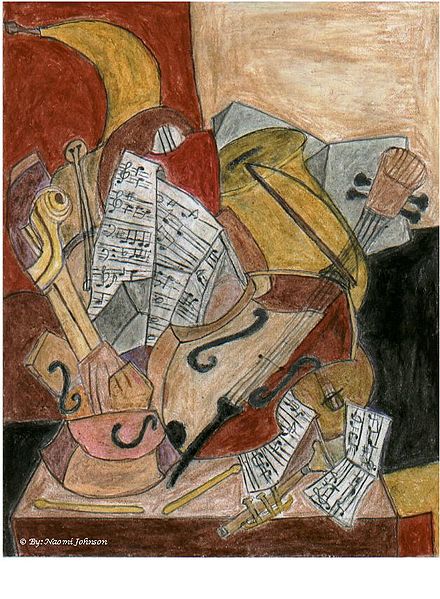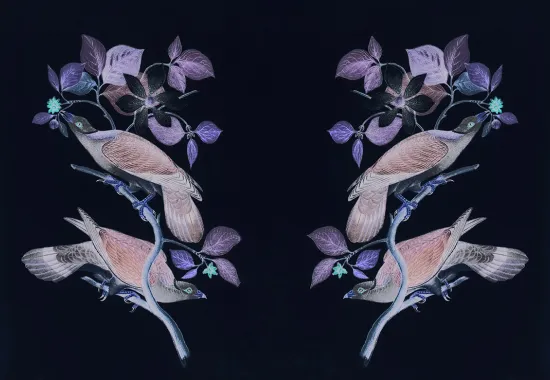On lyrics and lyrics
My students often ask me about the difference between writing songs and writing poems. They’re insistent -- so insistent – that they’re the same art form, and I always have to work to get them to stop thinking that way. They’re related art forms, surely, perhaps closer to each other than poetry to the novel or short story, but they’re not the same, just as working with paint and working with colored markers aren’t the same to visual artists. Sure, we use the term “lyrics” for both the poems and songs, and surely we mean the same thing, those utterings of a singular I in the extended moment of spiritual/emotional/intellectual intensity, but that doesn’t mean they’re the same thing.
The best person I heard on this subject is David Bowie, who once in an NPR interview responded to a comment about the poetry of his lyrics, that he was no poet, and I paraphrase, that poets didn’t have the luxury of having music to cover-up weaker moments of language. On the other hand, poets (at least free verse poets) don’t have to work in the confines and structures of a song, nor do they have to work in collaboration.
Realize this isn’t a question of values. I don’t know why song writers would want to be poets–surely the audience for poetry is smaller than that for lyricists, and the pay check for a bestselling song far outweighs the paycheck of a bestselling poem. Still, song writers often want to be hailed as poets, and my students (remember them?) get irate when I say their favorite singer songwriter isn’t a poet.
It’s not a criticism.
I write both poems and songs–I have for years. Currently, I play guitar and sing with a four piece (punk) rock outfit called the Downstrokes, and of course, I write poems like the ones that appeared in North American Review. I write song lyrics and lyric poems. I thought I’d spend a little bit of time discussing the differences.
1. The mantra of modernism was keep it new and in poems we strive to be original, to find new ways of saying the old things, to avoid cliche. Frost: “Nothing new for the writer, nothing new for the reader. No tears for the writer, no tears for the reader.” Poems should surprise the reader.
But songs work differently. Songs engage familiarity, from chord progressions to song structures to their lyrics, songs want the audience to feel in a familiar place. That’s the purpose of the chorus, after all. I want people in the audience singing along after the first run through the song.
2. How we receive the work. We listen to our music. We take it with us. We often hear a song over and over. I know a few people who, like me, keep poems on their MP3 player, but mostly, we read poems on a page and engage the text silently; we often read them only once or twice, though our favorite poems we may read more regularly. . . Even auditory techniques such as rhyme, anaphora, and other devices are muted in our experience of a poem, whereas such techniques when used in song lyrics are experienced viscerally, often in a melody or harmony that emphasizes such gestures and makes them easier to remember, and we can play them over and over again even while doing other things (try reading a poem and driving a car, for instance).
3. Poetry writing is a solitary act — it’s me and my pen. Sure, I share my poems with select friends for their input, but eventually the decisions are mine. Because I play in a band, the decisions are much less cut and dried. My bandmates stay away from my lyrics up to a point, but they do make suggestions, and rhythm structures, melodies, etc. may change the way the words are delivered or the length of the verses. The very collaborative nature of songwriting for me makes it a dramatically different event. Furthermore, because I’m ultimately playing a genre of music, I’m much more keenly aware of the audience for my songs than I am of my poems–it goes back to that issue of familiarity.
4. Instrumentation. Bowie’s right. When we’re listening to music, we’re not only listening to the words: we’re listening to the instruments, the music. If the rhythm section is making my ass boogie, what do I care that the lyrics are a little inane, a little cliché I want to move. And minor chords do a lot to emphasize sadness, or a distorted, crunching guitar at half time can insist on anger in ways that allow the song’s words not to have to do as much work. The poem is just me and the page, and I remember that every time I do a poetry reading.
This is not to say songwriting is easier. I revise my songs just as much as I revise my poems. Poems and songs–lyrics and lyrics–are different beasts with different objectives and dare I say it, for me anyway, different starting points. I like writing both, as I also like writing fiction and criticism, because they allow me different entries into using language, and as a poet, it’s a love for words and all I can do with them, that keeps me interested and engaged...
Gerry LaFemina's latest book is Vanishing Horizon. He directs the Frostburg Center for Creative Writing at Frostburg State University where he is an Associate Professor of English. He divides his time between Maryland and New York.
Photo by Naomi Johnson
Recommended
The Shirt
After Hearing David Rothenberg Sang with Birds
Frothing Pink Poodle Droppings






